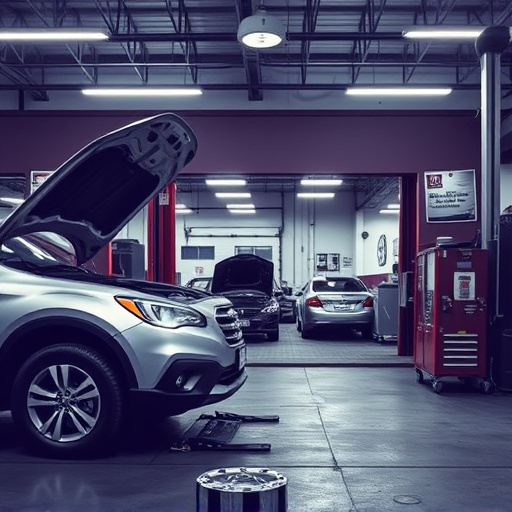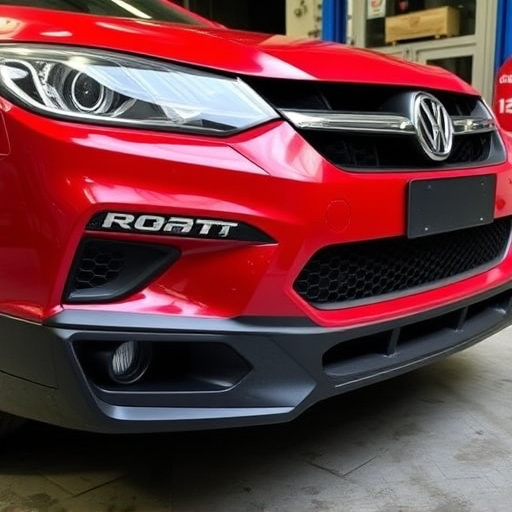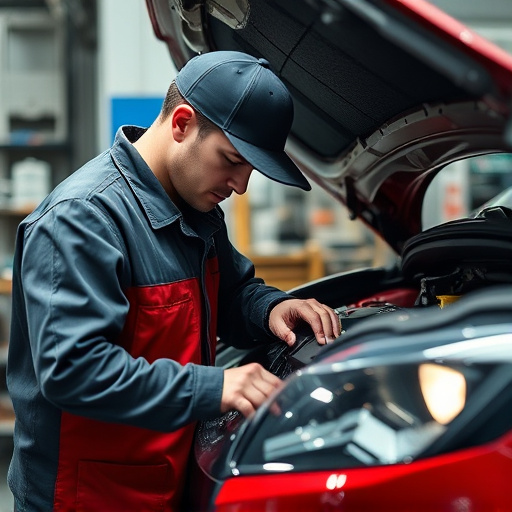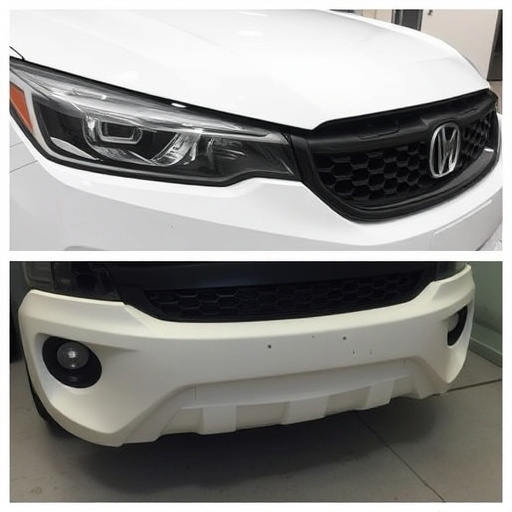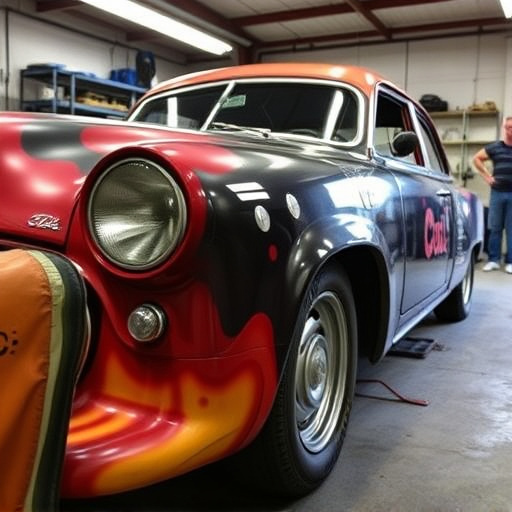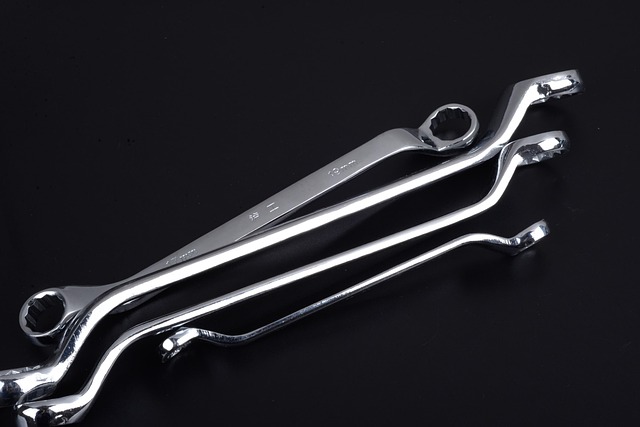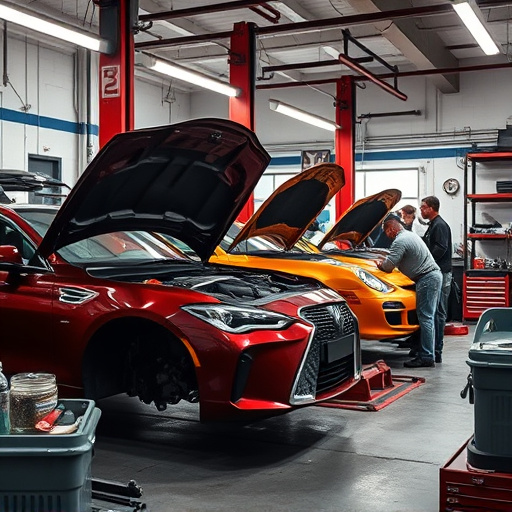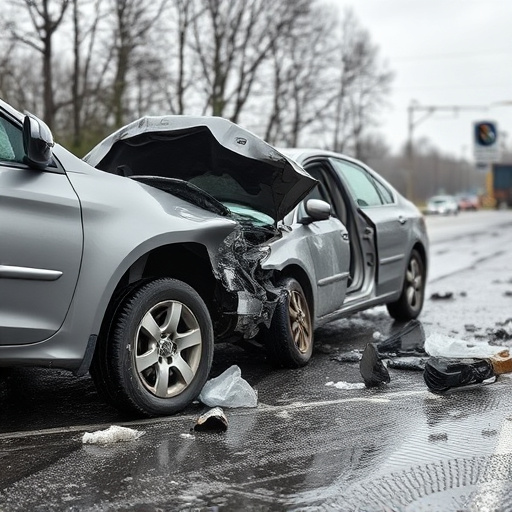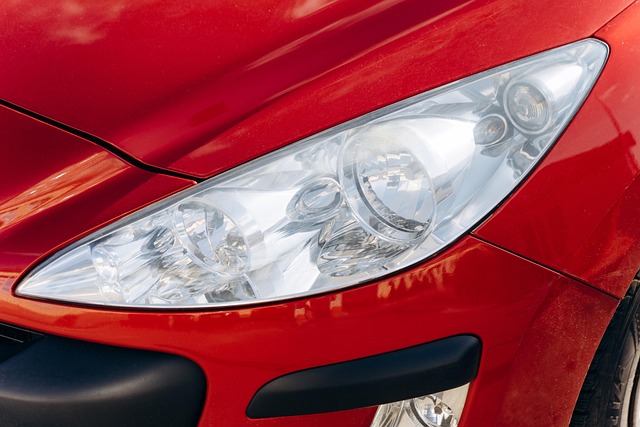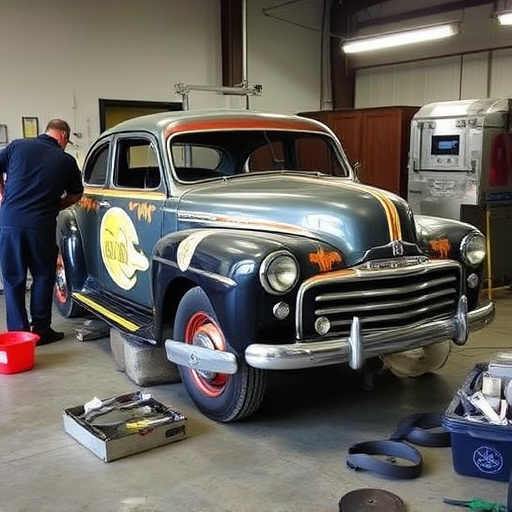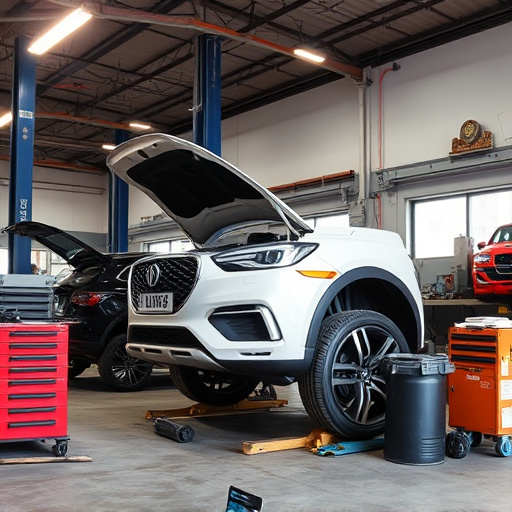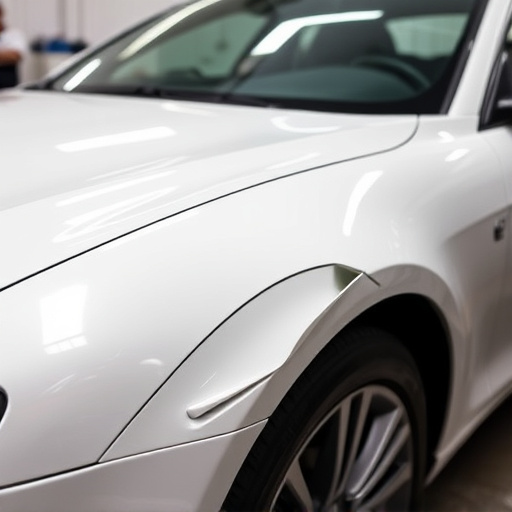Electric and hybrid vehicles require specialized advanced welding equipment for repairs due to their complex structures. Traditional methods are insufficient, prompting shops to invest in modern technology for clean cuts and welds. This ensures structural integrity and vehicle efficiency, even during seemingly simple tasks like dent repair. Advanced welding equipment offers precision, reduced heat input, faster cooling, and seamless integration, preserving aesthetics. The future of EV repairs relies on advancements, with AI integration and computer-aided design expected to streamline processes further.
In the rapidly evolving landscape of automotive repair, electric and hybrid vehicles present unique challenges. “Advanced Welding Equipment for Electric and Hybrid Vehicle Repairs” explores the specialized tools needed to meet these demands. From understanding the distinct requirements of EV repair to highlighting cutting-edge welding technology, this article delves into the benefits and future trends shaping the industry. Discover how advanced welding equipment is revolutionizing vehicle maintenance, ensuring safety and efficiency in a sustainable future.
- Understanding the Unique Demands of EV Repair
- Advanced Welding Technology for Electric and Hybrid Vehicles
- Benefits and Future Trends in EV Welding Equipment
Understanding the Unique Demands of EV Repair

Electric and hybrid vehicles present unique challenges when it comes to repairs, especially in the realm of vehicle body work. The advanced technology incorporated into these cars demands specialized knowledge and tools, including advanced welding equipment. Unlike conventional vehicles, EV components must be precisely aligned and welded to ensure optimal performance and safety. For instance, fender repair on an electric car may involve intricate crimping and sealing techniques to preserve the vehicle’s energy efficiency.
The complexity of hybrid and electric vehicles’ structures requires specialized advanced welding equipment that can handle a variety of materials and designs. Traditional welding methods might not be suitable for certain high-tech parts, leading repair shops to invest in modern equipment capable of precise, clean cuts and welds. This ensures not only the structural integrity of the vehicle but also maintains its overall efficiency during repairs, particularly in areas like vehicle dent repair or replacing components without compromising the intricate systems that make these vehicles unique.
Advanced Welding Technology for Electric and Hybrid Vehicles

The advancement in electric and hybrid vehicle technology has prompted a need for specialized advanced welding equipment to facilitate precise and efficient repairs. Traditional welding methods often fall short when dealing with the intricate structures and sensitive materials found in modern cars, like the delicate battery packs and lightweight alloys. Therefore, auto repair shops, especially those catering to high-end brands such as Mercedes Benz, must invest in cutting-edge technology to keep up with these advancements.
Specialized advanced welding equipment offers numerous benefits for car body repair and maintenance of electric vehicles. These include enhanced precision, reduced heat input, and faster cooling times, all of which are crucial when working on sensitive components. Moreover, modern welding systems allow for the seamless integration of new parts while preserving the original vehicle aesthetics. For instance, laser welding can create incredibly fine, precise joins that are almost invisible, maintaining the car’s overall aesthetic appeal, be it a sleek Mercedes Benz or any other make known for its meticulous design. This level of craftsmanship is not only desirable but also ensures the longevity and safety of these complex vehicles, covering everything from car body repair to intricate tire services.
Benefits and Future Trends in EV Welding Equipment

The future of electric and hybrid vehicle repairs is closely tied to advancements in welding equipment. As the demand for these vehicles continues to grow, so does the need for specialized tools that can handle intricate car body restoration tasks with precision and efficiency. Advanced welding equipment offers numerous benefits, including improved accuracy, reduced heat input, and faster cooling times—all crucial factors for maintaining the structural integrity of EV batteries and components while ensuring seamless car bodywork services.
Looking ahead, trends suggest that future EV welding equipment will integrate artificial intelligence and computer-aided design to streamline processes further. These innovations promise to enhance productivity, minimize errors, and enable complex weld patterns tailored to specific car body parts. With the ongoing evolution of electric mobility, advanced welding technology is poised to play a pivotal role in keeping pace with the dynamic demands of the industry, ensuring top-tier car bodywork services for years to come.
The evolving landscape of electric and hybrid vehicle (EV) repairs demands specialized advanced welding equipment capable of precise, efficient, and safe connections. The adoption of cutting-edge welding technology not only enhances repair quality but also contributes to the overall sustainability goal of EV manufacturing by minimizing material waste and improving component longevity. As the market for EVs continues to grow, so too will the need for innovative, high-performance welding solutions. Investing in advanced welding equipment is a strategic move that guarantees workshops remain competitive and adept at catering to the unique demands of this dynamic sector.
